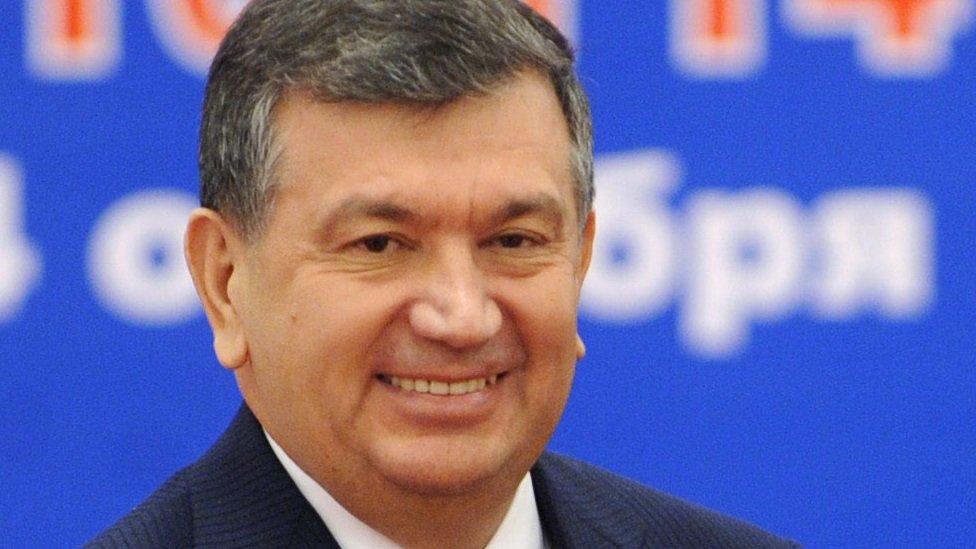After Karimov: How does the transition of power look in Uzbekistan?
- Published
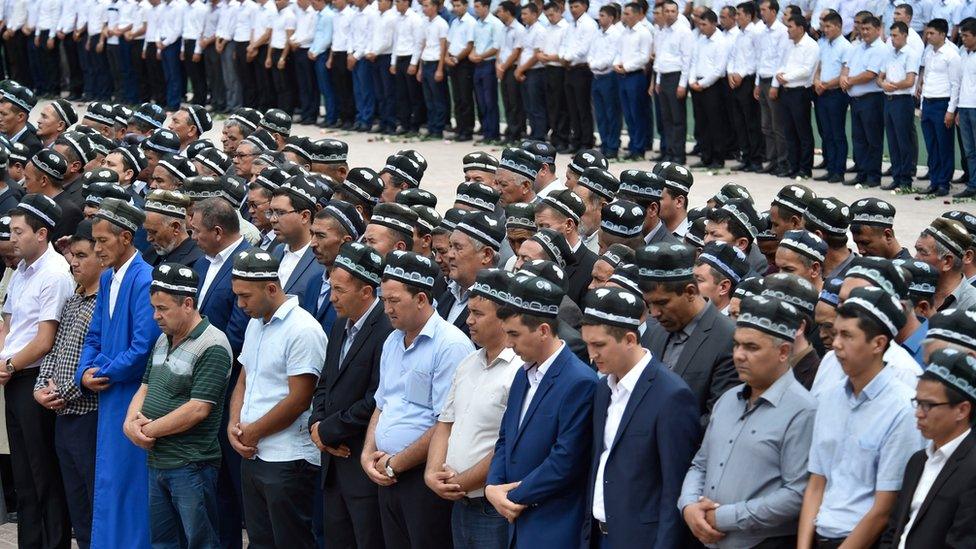
Uzbeks paid their respects to Mr Karimov at his funeral in September
Up until recently, people in Uzbekistan knew only one leader - Islam Karimov, who created one of the most repressive states in the world.
When he died, society was caught in uncertainty - who would succeed him, and how? Some even predicted a violent power struggle.
But the power transfer went remarkably smoothly. Prime Minister Shavkat Mirziyoyev was named as the acting president and Karimov's Liberal Democratic party nominated him as its candidate for the presidential election scheduled on 4 December.
Few people today doubt that Mr Mirziyoyev will be the next leader of Uzbekistan.
But the job is far from over.
Unofficially president
Mr Mirziyoyev has not been officially registered as a presidential candidate yet but his campaign seems to be in full swing. He has been criss-crossing the country meeting people, issuing decrees and signing laws.
"He does that because he needs to become visible, not everyone will know him," argues Luca Anceschi, a lecturer in Central Asian studies at the University of Glasgow.
Mr Mirziyoyev worked in the shadow of Karimov's rule and, according to cables released by the Wikileaks organisation, he instructed state media not to show images of him because the president may have got jealous.
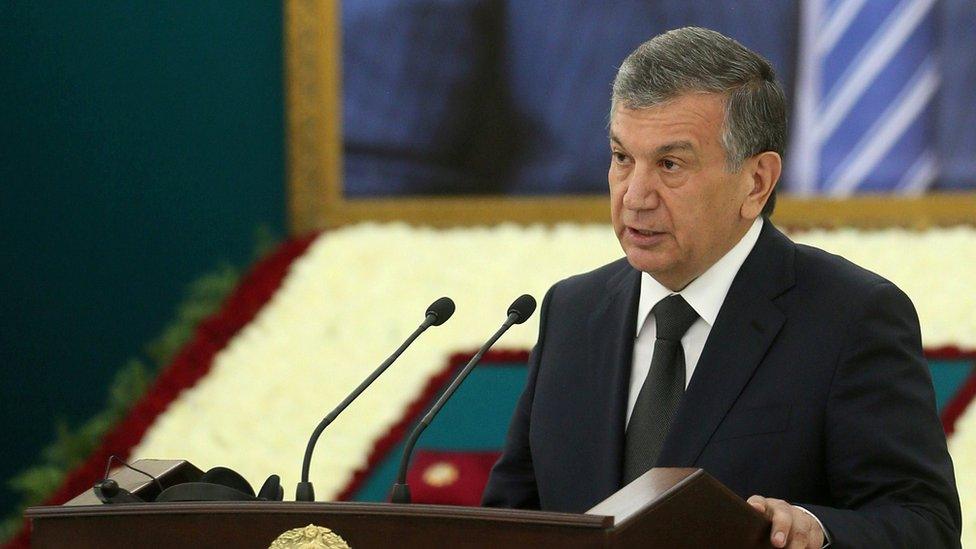
Prime Minister Shavkat Mirziyoyev, as interim president, has brought in a number of changes
Now, he's trying to make up lost time: he has visited eight of Uzbekistan's 13 regions of Uzbekistan in two weeks.
Interestingly, Mr Mirziyoyev has so far avoided visiting regions in the Ferghana valley, where discontent over the government's policies is believed to be high. People there still remember how the army violently broke up a major public protest in Andijan in 2005.
Shavkat Mirziyoyev seems to be consolidating power by reshuffling the cabinet, appointing new governors, police chiefs and prosecutors.
He even changed the minister of education and his deputy. The resources of this ministry are regularly used during elections to manipulate votes and reach out to the voters.
Regional media also report that Mr Mirziyoyev's family has started taking over the businesses that belonged to the Karimov family.
But gaining control over finance and powerful state agencies is not enough. The interim president has to compete with Karimov's legacy and convince people he is the rightful successor.
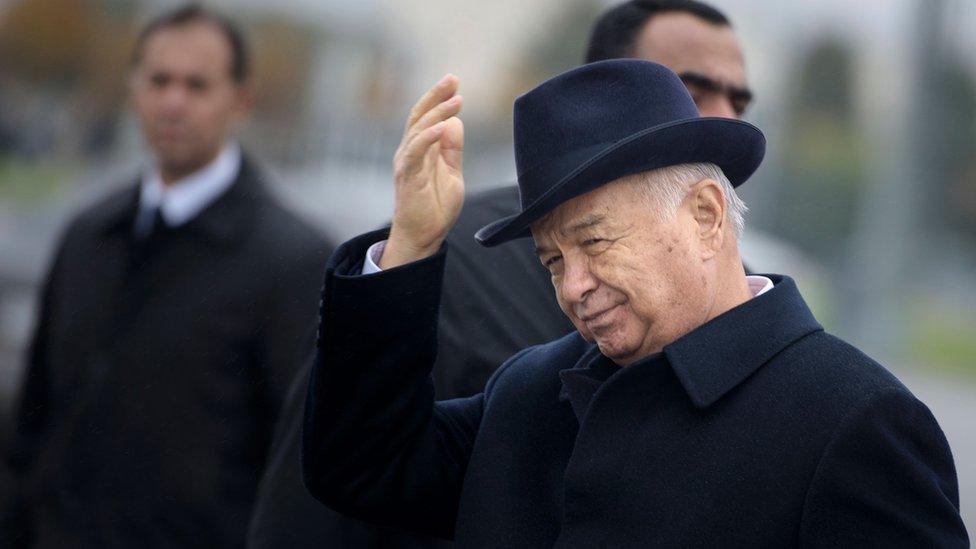
Islam Karimov created one of the world's most oppressive regimes
The entire legitimacy of the regime in Uzbekistan was based on Islam Karimov's image. Any thought that someone else could lead the country was suppressed before it could be even voiced. State propaganda relentlessly reminded people that Uzbekistan was a "state with a great future" thanks to Karimov.
"People in Central Asia are very close to their first-generation leader because they have this first president's aura, which others don't have," says Dr Anceschi.
Mr Mirziyoyev needs to boost his legitimacy - and he has done that by promising to follow the course of his predecessor.
"It is our duty to implement the main concepts of the progressive path determined by [Islam Karimov] and follow its direction, goals and aims without questions and in full," he announced when the joint session of the parliament named him as the interim president.
And yet, his first steps reversed some unpopular decisions made under Karimov's rule. He abolished "unscheduled" audits of businesses. Foreign currency revenue regulations for farmers were eased. Main roads used by the president's convoy, and closed for the public, were opened again.
These measures seem to have had an effect on the population. "People say that the new leader cares about them," a resident of the capital Tashkent tells the BBC. "Many are quite optimistic."
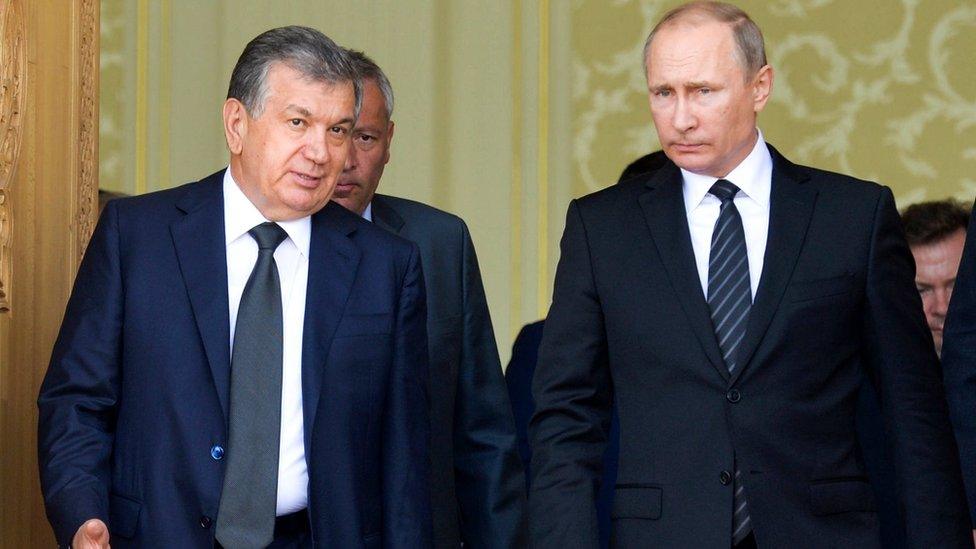
Mr Mirziyoyev says he wants closer ties with Russia, China and the US
In foreign policy, Mr Mirziyoyev called for an "open and widened dialogue" with Tajikistan, which until recently was regarded as the arch enemy. He also invited a delegation from Kyrgyzstan a month after a tense stand-off between the two countries over disputed territories.
These moves are also aimed at bolstering legitimacy, says Alisher Khamidov, from the University of Newcastle.
"In the absence of Karimov, the Uzbek elites need new forms of legitimisation. Good relations with large states such as Russia and with neighbours fit this purpose."
But Lawrence Markowitz, associate professor at Rowan University in New Jersey, says that these steps are superficial. No changes in the political system can be expected in Uzbekistan, he says.
"Elites have vested interests in preserving the status quo that enables them to continue to channel side payments and rents into their private coffers," Dr Markowitz says. "Political institutions are too weak to support a diffusion of power away from the presidency."
In his attempt to get recognition, the new leader of Uzbekistan seems to be offering carrots to the society. But observers agree that this honeymoon period will unlikely last very long and that soon, sticks will replace carrots.
Republic of Uzbekistan
Capital: Tashkent
-
Population 32 million
-
Area 447,400 sq km (172,700 sq miles)
-
Major languages Uzbek, Russian, Tajik
-
Major religion Islam
-
Life expectancy 68 years (men), 74 years (women)
-
Currency Uzbek som
- Published1 September 2016
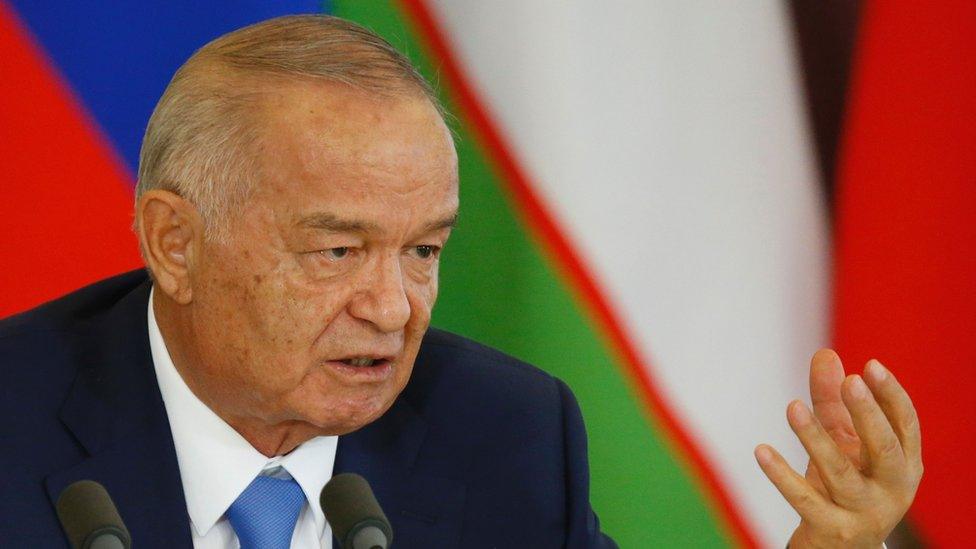
- Published3 September 2016
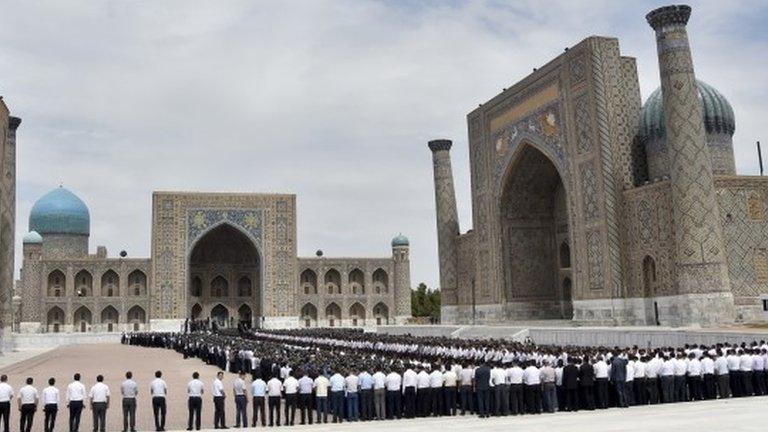
- Published8 September 2016
